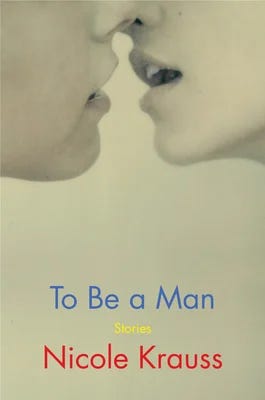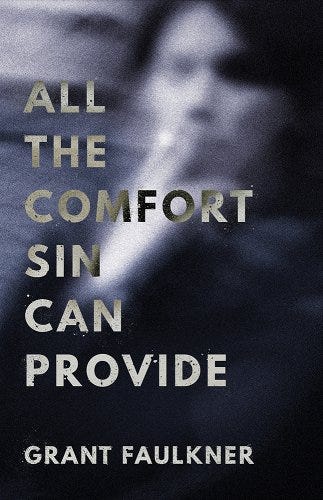“The central project of my adult life as a writer is to know and love what we have been given, and to urge others to do the same.”
—Barry Lopez
When I read the quote above, I wondered how often I sit down to write for the pure love of it all. There are so many reasons to write—to know, to feel, to imagine, to notice, to escape, to be, but in the end, the best writing comes from simple love.
Love, in fact, contains all of the things in the list I just made, and Barry Lopez knew that.
I often say that writing is my form of prayer. When I’m at my best it is. When I’m at my worst, I’m writing in a rote way, as if it’s a job. A prayer is best invited in with a deep breath, and sometimes I’m in too much of a rush to remember to take that deep breath.
Truth be told, my life isn’t truly set up for prayer at the moment. Sadly. The last few months I’ve been scurrying through projects, trying to catch up, always trying to catch up, attending to life’s business (necessary, certainly, but not an act of love), and all of the scurrying has left little room for the love of it all.
So I was pleased to read a review of Barry Lopez’s posthumous book of essays, Embrace Fearlessly the Burning World. Lopez is one of my writer heroes who I look to for his unflinching depth of integrity. I look to him for the truth, and, in fact, his writing was an ongoing spiritual quest (he once stayed at the Kentucky abbey where the mystic and writer Thomas Merton lived, and he prayed daily as an effort to be in attendance to the presence of the Divine).
He asks readers not to despair of this burning world. One way not to despair? To pay attention.
I often evangelize about the need to pay attention—perhaps because I feel that I always need to pay greater attention (most evangelists are actually speaking to themselves).
I admire how Lopez paid attention to the land, the hallowed qualities of the land, which comes through in essays ranging from the San Fernando Valley to Antarctica. If you love the land enough, he suggests, the land will love you back, and even heal you. Much like writing.
I like how Lopez doesn’t give up despite the many ways the world seems to be burning. In pondering the degradation of the land, he notes how the divine is “still present, vibrating in the shadow lines,” beneath the asphalt and concrete, if you pause to notice. In noticing, he finds a love, “the easing of a particular kind of longing” that results from “intense, amorous contact with the Earth.”
Love isn’t simple for him, though. He faces the scars the land holds, the sins that still lie in its soil. He traveled to battle sites and massacre sites—the massacre sites outnumbering the battle sites. None of the massacre sites were marked, though, he notes.
“What kind of governance is apt to arise,” he asks, among a people so devoted to amnesia?
That observation made me think of the recurrent phrase from people protesting critical race theory as a framework for teaching our history: “Education Not Indoctrination.” The protesters are protesting the act of noticing the atrocities that are part of our history. They have devoted themselves to amnesia. And by doing so, they’re blocking the healing power of recognition, of reckoning itself.
A big part of writing—a big part of love—is to go to the massacre sites, the historical ones and the ones in our lives, and to recognize them, to feel them, to be able to speak about them, and thereby heal.
Love for Lopez means grappling with the ways genocide and slavery still shape our social geographies today.
What if we decided that studying the truth of our past, the truth of the sins, the truth of the horror of it all, was an act of love? What if that’s the way to love our nation today?
Because a quote
“The practice of love offers no place of safety. We risk loss, hurt, pain. We risk being acted upon by forces outside our control.”
― bell hooks, All About Love: New Visions
Because the art of transformation
It’s so nice just to hear Joy Harjo and Elizabeth Alexander talk about poetry. It’s so nice just to hear the intonations of their words as they talk about the power of words.
Because age affects creativity
One of the joys of living for me is to think about how I think, especially how the very nature of my thinking changes over time, as if I’m not even the same person I once was. Many of my thoughts now just weren’t possible 5 or 10 years ago.
That’s why I enjoyed reading this new study about creativity and age.
The skinny: Conceptual innovators—innovators who challenge conventional wisdom and come up with new ideas—tend to do their best work in their mid-twenties, while experimental innovators peak in their fifties, the researchers contend.
The reason for this difference is that radical thinkers who come up with something new usually do so before they are steeped in the conventions of their field. Meanwhile, experimenters take decades of trial and error and accumulated knowledge to make unusual connections, going beyond the conventions of their domain.
Because sexy book covers
We have to admit that sex sells (even to high-minded folks like us). I’ve picked up many a book in a bookstore because of the sexiness of the book cover. I want the covers of all of my books to hold a certain sex appeal.
So it was fun to read Electric Literature’s power ranking of the sexiest book covers. Here’s my favorite from the rankings. I like its simplicity. I like its yearning. I like that it captures the moment just before everything happens.
All the Comfort Sin Can Provide
If you like this newsletter, please consider checking out my recently released collection of short stories, All the Comfort Sin Can Provide.
Lidia Yuknavitch said:
“Somewhere between sinister and gleeful the characters in Grant Faulkner’s story collection All the Comfort Sin Can Provide blow open pleasure—guilty pleasure, unapologetic pleasure, accidental pleasure, repressed pleasure.”
More about me: I am the executive director of National Novel Writing Month and the co-founder of 100 Word Story. I am the author of Pep Talks for Writers: 52 Insights and Actions to Boost Your Creative Mojo and the co-host of the podcast Write-minded. My essays on creative writing have appeared in The New York Times, Poets & Writers, Lit Hub, Writer’s Digest, and The Writer.
For more, go to grantfaulkner.com, or follow me on Twitter or Instagram at @grantfaulkner.






Thank you, Grant! I was struggling a bit with purpose myself, and this was refreshing and beautiful to read. Much appreciated!
Grant, your compassion for those protesting CRT — those dedicated to amnesia, as you so well put it, — because they are missing out on the healing power of reckoning is an inspiring example. An example that I would do well to emulate, if only for my blood pressure!